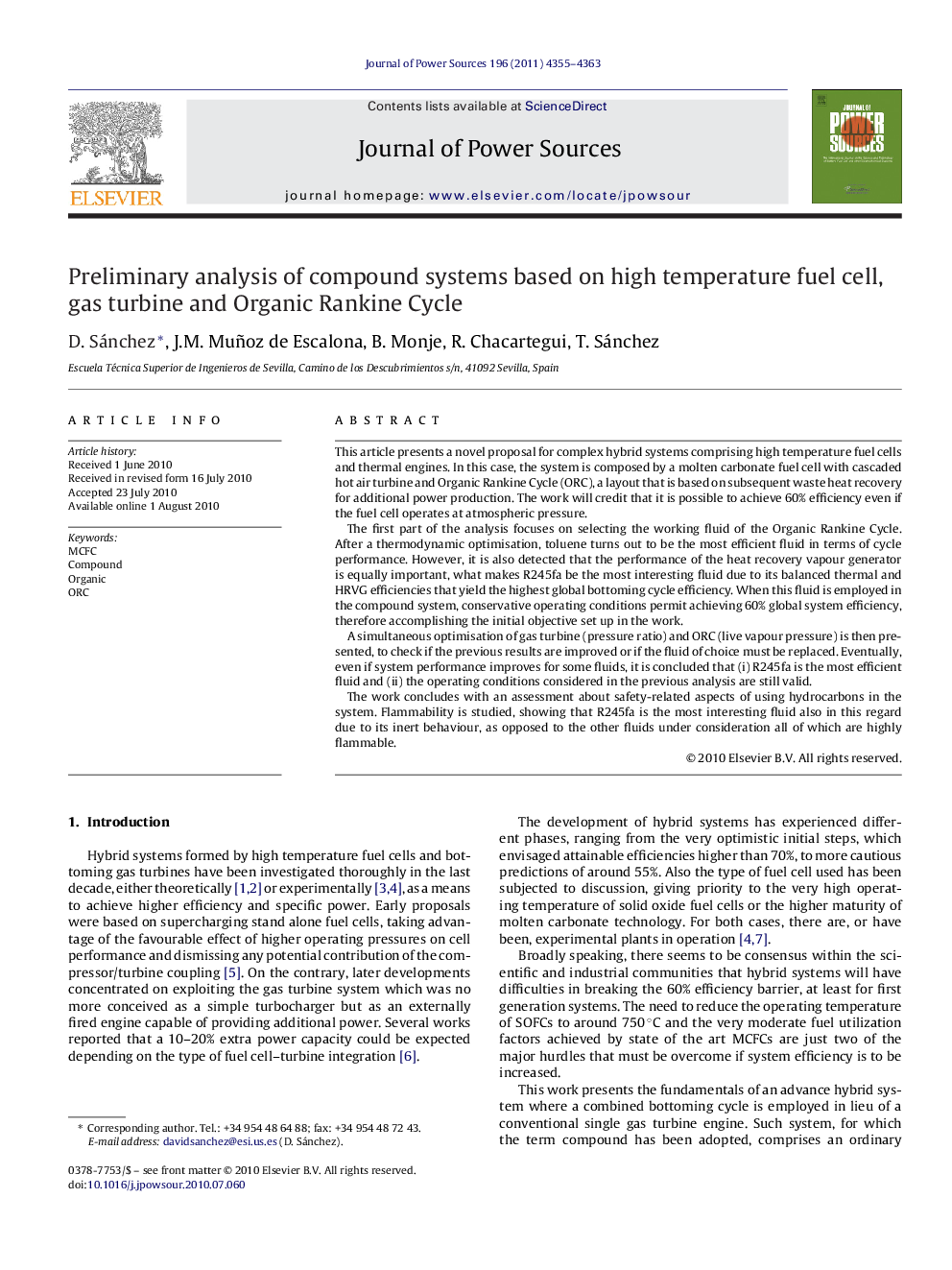| Article ID | Journal | Published Year | Pages | File Type |
|---|---|---|---|---|
| 1289134 | Journal of Power Sources | 2011 | 9 Pages |
This article presents a novel proposal for complex hybrid systems comprising high temperature fuel cells and thermal engines. In this case, the system is composed by a molten carbonate fuel cell with cascaded hot air turbine and Organic Rankine Cycle (ORC), a layout that is based on subsequent waste heat recovery for additional power production. The work will credit that it is possible to achieve 60% efficiency even if the fuel cell operates at atmospheric pressure.The first part of the analysis focuses on selecting the working fluid of the Organic Rankine Cycle. After a thermodynamic optimisation, toluene turns out to be the most efficient fluid in terms of cycle performance. However, it is also detected that the performance of the heat recovery vapour generator is equally important, what makes R245fa be the most interesting fluid due to its balanced thermal and HRVG efficiencies that yield the highest global bottoming cycle efficiency. When this fluid is employed in the compound system, conservative operating conditions permit achieving 60% global system efficiency, therefore accomplishing the initial objective set up in the work.A simultaneous optimisation of gas turbine (pressure ratio) and ORC (live vapour pressure) is then presented, to check if the previous results are improved or if the fluid of choice must be replaced. Eventually, even if system performance improves for some fluids, it is concluded that (i) R245fa is the most efficient fluid and (ii) the operating conditions considered in the previous analysis are still valid.The work concludes with an assessment about safety-related aspects of using hydrocarbons in the system. Flammability is studied, showing that R245fa is the most interesting fluid also in this regard due to its inert behaviour, as opposed to the other fluids under consideration all of which are highly flammable.
